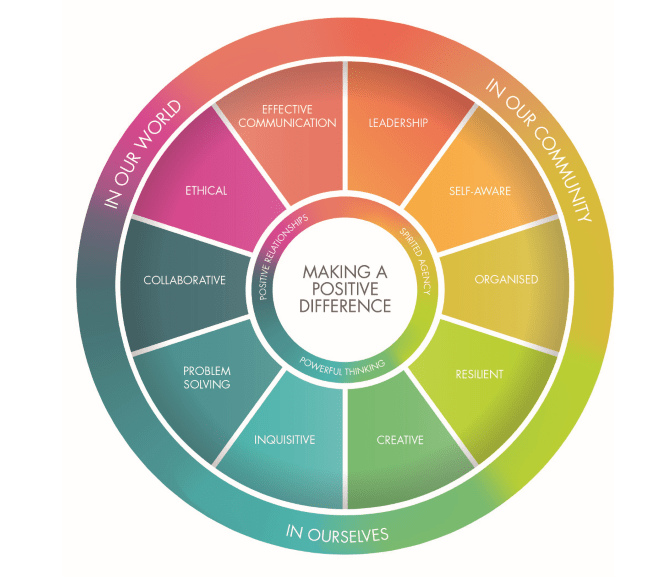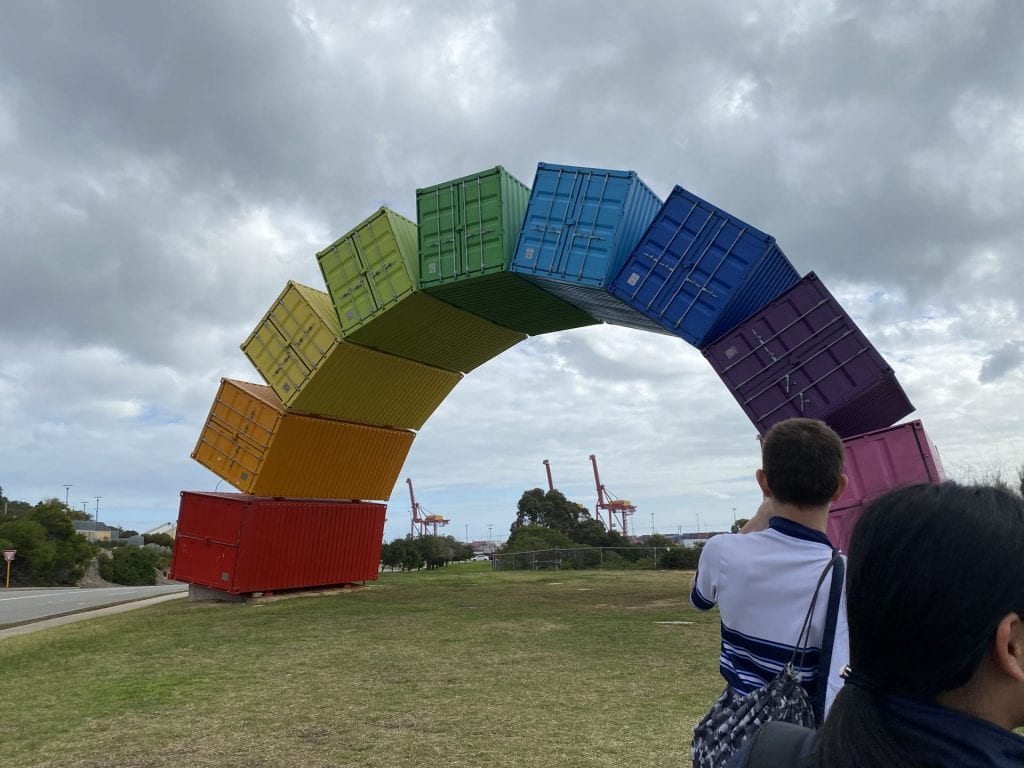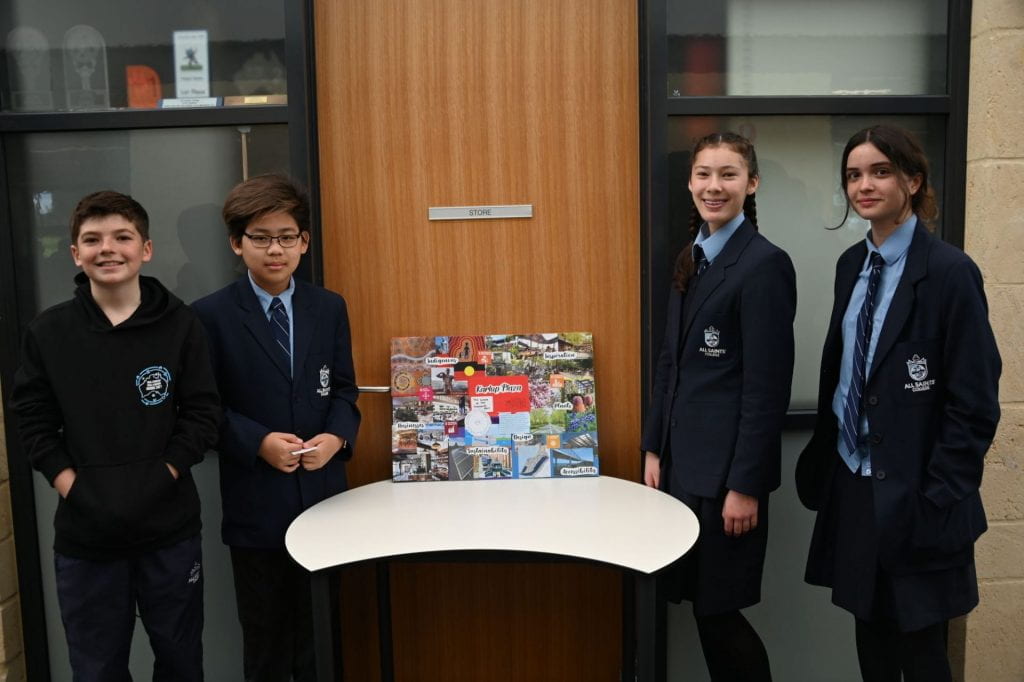
Project Utopia was a Year 7 cross-curricular task which built students’ skills in HASS, English and innovation. The goal was to redesign the Fremantle Port into an environmentally sustainable and liveable space based on the UN Sustainable Development Goals. We worked with experts throughout this project, including Nicole Lockwood, who originally brought us this project. Ms Lockwood is a consultant who specializes in urban development. She and all the other experts helped us to make sure our redesign was realistic, sustainable, liveable, and was something the community would want and use. We were divided into groups, which also helped us build relationships with our peers.
My group decided to create a plaza, with the vison of it being a heart of the community where people work, play and live. We called it Karlup Plaza, because Karlup means heart country or place of belonging in Noongar, which we thought was fitting. The UN Global Goals we focused on were Affordable and Clean Energy, Decent Work and Economic Growth, Industry Innovation and Infrastructure, Reduced Inequalities and Sustainable Cities and Communities. We chose these goals as a focus because they are extremely important to achieve in the future to sustain our planet and its resources.

An important part of this project was research and planning-design thinking. This included learning about sustainable living, Indigenous culture and lifestyle, the UN Global Goals, and how to build inclusive infrastructure. Early on, we visited Fremantle Port to see what it looks like, identify areas for improvement and learn about its history. Every group member focused on a different area of the port, taking photos and writing notes, later combining our individual tasks. This was a good way of sharing the project and making sure everyone contributed. We did a lot of brainstorming of ideas before we settled on the plaza. Each group member had their own responsibility for shaping the design. My role was plaza architect – I incorporated how to bring our ideas together in a way that looked good, was functional, and supported the UN Global Goals. We wanted to connect the plaza to Indigenous history and culture and incorporate it into the design. That’s why we gave our plaza an Indigenous name and used a painting of the rainbow serpent from the Indigenous dreamtime stories to wrap around the floor of the plaza. It was also important to us to make sure the plaza was accessible to everyone, including people with disabilities. We included things like ramps with every set of stairs and ensured our pedestrian bridge could comfortably handle a wide wheelchair. The design thinking process was an important stage of this project because it transformed our ideas into something tangible.


Organisation
Many of the ASC capabilities were used throughout this project, but some I personally used more than others. For me being organized was very important. Having all the correct materials, always being prepared, and managing my time effectively, were vital to the project’s success. At the beginning, I lacked this skill and I felt stressed and unprepared for some lessons. Once the group gathered momentum, I realised just how important organization is to ensure we didn’t fall behind. I wish I realised sooner, but once I did, things felt easier, and I felt less stressed.
Problem Solving
The other ASC capability I used a lot, was problem solving. This assignment required us to solve real world problems, such as what to do with a dead port in a way that is environmentally sustainable and inclusive of all people. We also had to solve everyday problems like working effectively in a group. When one of the group members wasn’t lifting their weight, it impacted negatively on the others in the group and on their work, so to solve this we tried to motivate them by giving them work we thought they would enjoy, which was somewhat successful.
Effective Communication
Effective communication was also an important capability to demonstrate. We all needed to communicate with each other, formally and informally. Within the group, we had to negotiate with each other when we disagreed on something. During classy time, we took turns to listen to each other’s ideas, and outside of class we communicated through email and teams to provide feedback to each other about what we had done. In this way, we were able to find agreement, and make sure everyone’s voice was heard.

In the real world, people go through difficulties and challenges all the time, so it’s an important skill to learn how to overcome problems. Project Utopia helped us prepare for the life’s challenges. For me, procrastination was my biggest challenge. Because the project was quite complex, I struggled to know where to start. I found it initially quite overwhelming, which made me feel stressed, and when I’m stressed, I find it difficult to get started and to do what I know needs to be done. Understanding that this was a problem, I sought out strategies to overcome procrastination. The first thing I did was I asked for advice from people I admire and respect, and I also read up on procrastination on psychological websites, such as Centre for Clinical Interventions. I made up a to-do list with all the tasks that I had responsibility for, and I put a due date at each one. This helped to keep me on track and helped manage my stress levels.


Project Utopia helped me learn about teamwork and working together, to be organized and manage my time, to communicate effectively, and to solve problems. Everything I’ve learned through this process, will help with my future projects. When I first heard about the project being set in a port, I was worried I would find it uninteresting. But when I found out that Fremantle Port was undergoing real change and that scientists and engineers are working hard to redesign the space, I became more motivated because I could see the relevance to our lives and future. Project Utopia was an interesting opportunity for me to see how to manage a real world projects.











